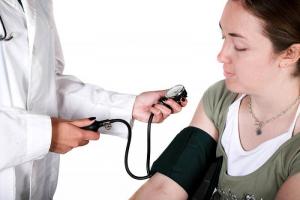Researchers recommend close monitoring of patients
By Ian Birch
A study in the British Journal of Psychiatry (BJPsych) has concluded that cardiovascular risk screening for patients taking anti-psychotic drugs is inadequate.
 Metabolic and cardiovascular health problems have become a major focus for clinical care and research in schizophrenia.
Metabolic and cardiovascular health problems have become a major focus for clinical care and research in schizophrenia.
Lead researcher Marc De Hert and his colleagues conducted a systematic review and quality assessment of guidelines or recommendations for cardiovascular risk in people with schizophrenia published between 2000 and 2010, using the Appraisal of Guidelines for Research and Evaluation criteria (AGREE).
They recommended the following tests should be carried out, in order of how regularly they should be done:
- fasting glucose (blood sugar)
- body mass index (BMI)
- fasting triglycerides
- fasting cholesterol
- waist
- high-density lipoprotein/low-density lipoprotein
- blood pressure
- symptoms of diabetes
Most of the guidelines which De Hert and his colleagues reviewed recommended giving people taking anti-psychotics advice on the following:
- physical activity
- diet
- treatment of lipid abnormalities e.g. cholesterol
- treatment of diabetes
- referral for advice and treatment
- advice on quitting smoking
- educating the family of the patient
De Hert recommended four European guidelines, of which he is the author of one.
The authors conclude that there is a significant risk of metabolic problems and obesity in people taking anti-psychotics and that “clinicians need to have access to key recommendations from the best available guidelines, be critical of how these are developed, and consider their appropriateness for use in their own clinical practice".
- Meanwhile in a separate study in the August BJPsych, a study concludes that overnight bed-wetting is a major problem affecting more than 20% of people taking the second-line treatment clozapine for schizophrenia. Lead researcher Dr Mira Harrison-Woolrych found that 20.7% of patients on clozapine bed-wetted during the night, compared with 9.6% of patients on olanzapine, 6.7% taking quietiapine and 6.2% on risperidone.





